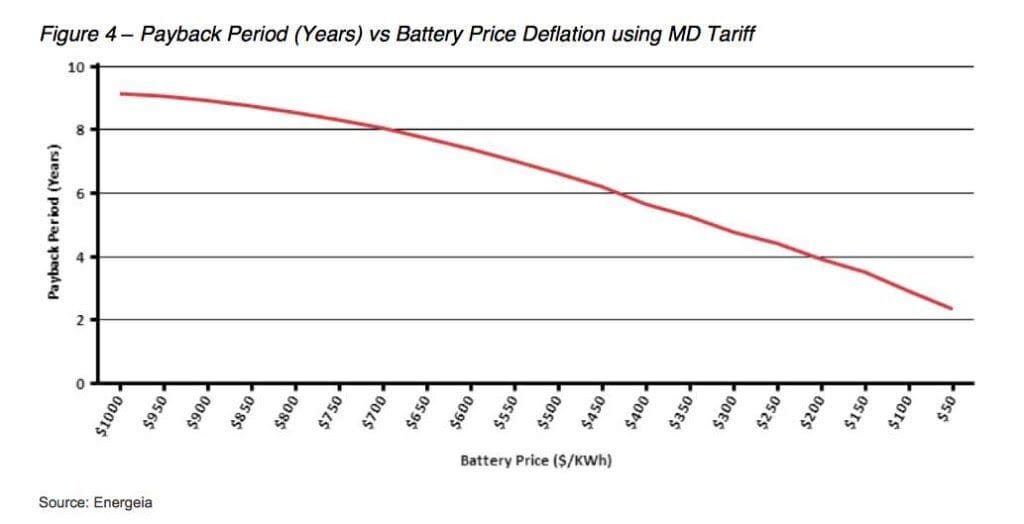The point of mass uptake of battery storage in Australia may be closer than most people think, according to a new survey, although it would require a different tariff structure for electricity prices.
The survey, the second in recent months by Energeia analyst Melanie Koerner, says that under the “flat tariff” structure most common in Australia, battery storage prices will need to fall dramatically if they are to be taken up by households.
But if the tariffs are based around maximum demand charges, and these are introduced nationally, then the price of battery storage may need to fall only slightly – to around $A900/kWh, from around $1,000kWh now – before they become an “economically rational” investment for households.
If maximum demand tariffs are introduced, and battery storage costs fall to around $A400/kWh as the industry predicts, then the uptake in Australia could surge to around 2.8 million households. Under the flat tariff structure, prices would need to fall to around $A150/kWh before there is mass market interest.
The study serves to highlight that the uptake of battery storage technology will depend as much on the structure of tariffs as it does on manufacturing costs, and on extracting benefits for utilities.
Demand tariffs, particularly ones that equate to maximum demand on the grid, rather than individual homes which can be highly variable, may also deliver significant benefits to the grid
On the flat tariff common to many areas in Australia, the news is not good. Energeia says the cost of battery storage will need to fall to around $A150/kWh mark before households are financially better off with storage.
“This only becomes viable for the household when the levelised cost of storing the energy in the battery falls below the difference between the cost of energy to the customer (~22c/kWh) and the opportunity cost of missing out on the feed-in credit (~6c/kWh),” the report says.
This breakpoint occurs at a battery cost of ~A$150/kWh for the majority of households. When it does happen, the optimal battery capacity for these customers falls between 7 kWh and 15 kWh, reflecting the volatility in daily consumption between households.

© 2016 Solar Choice Pty Ltd